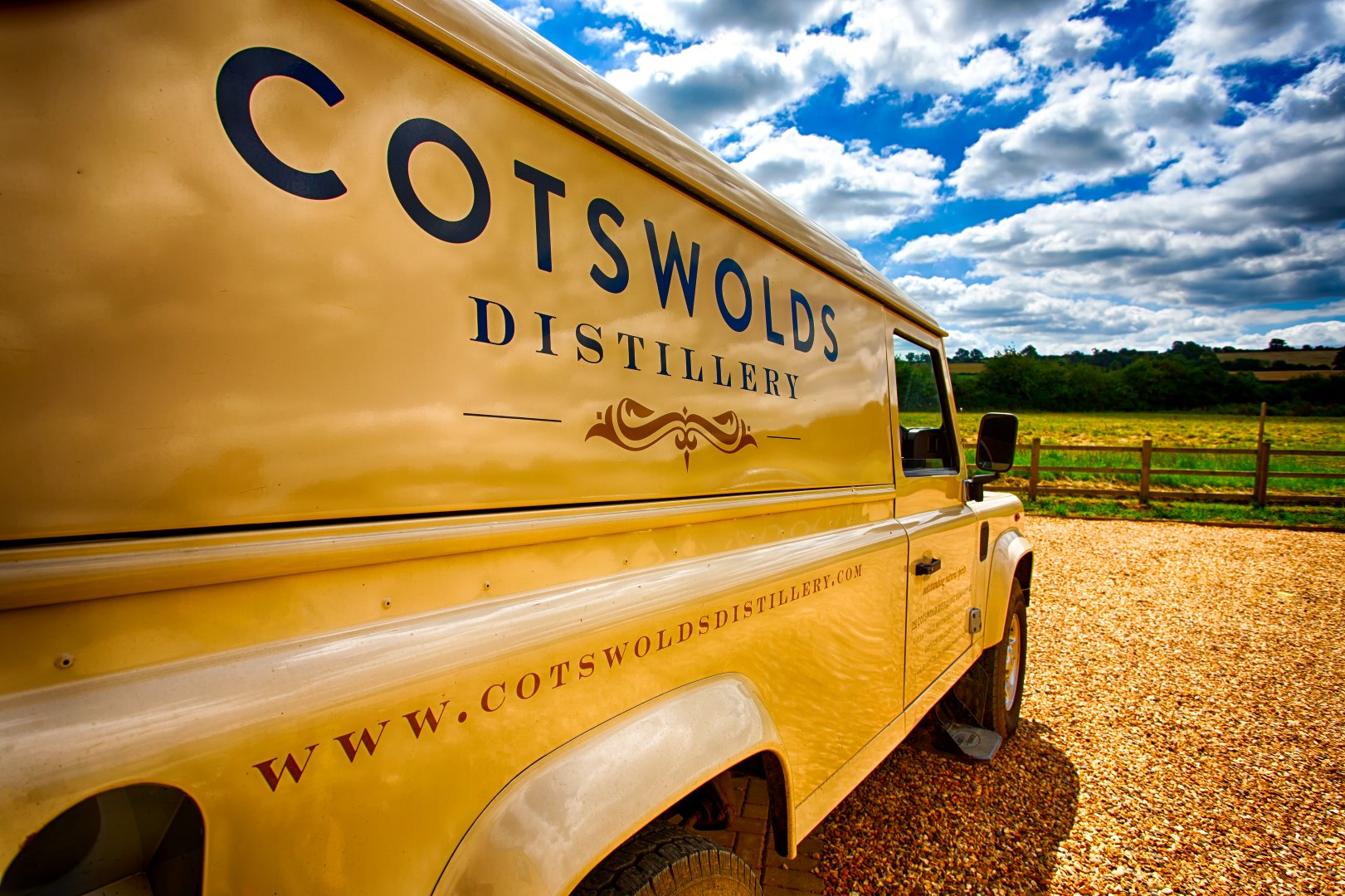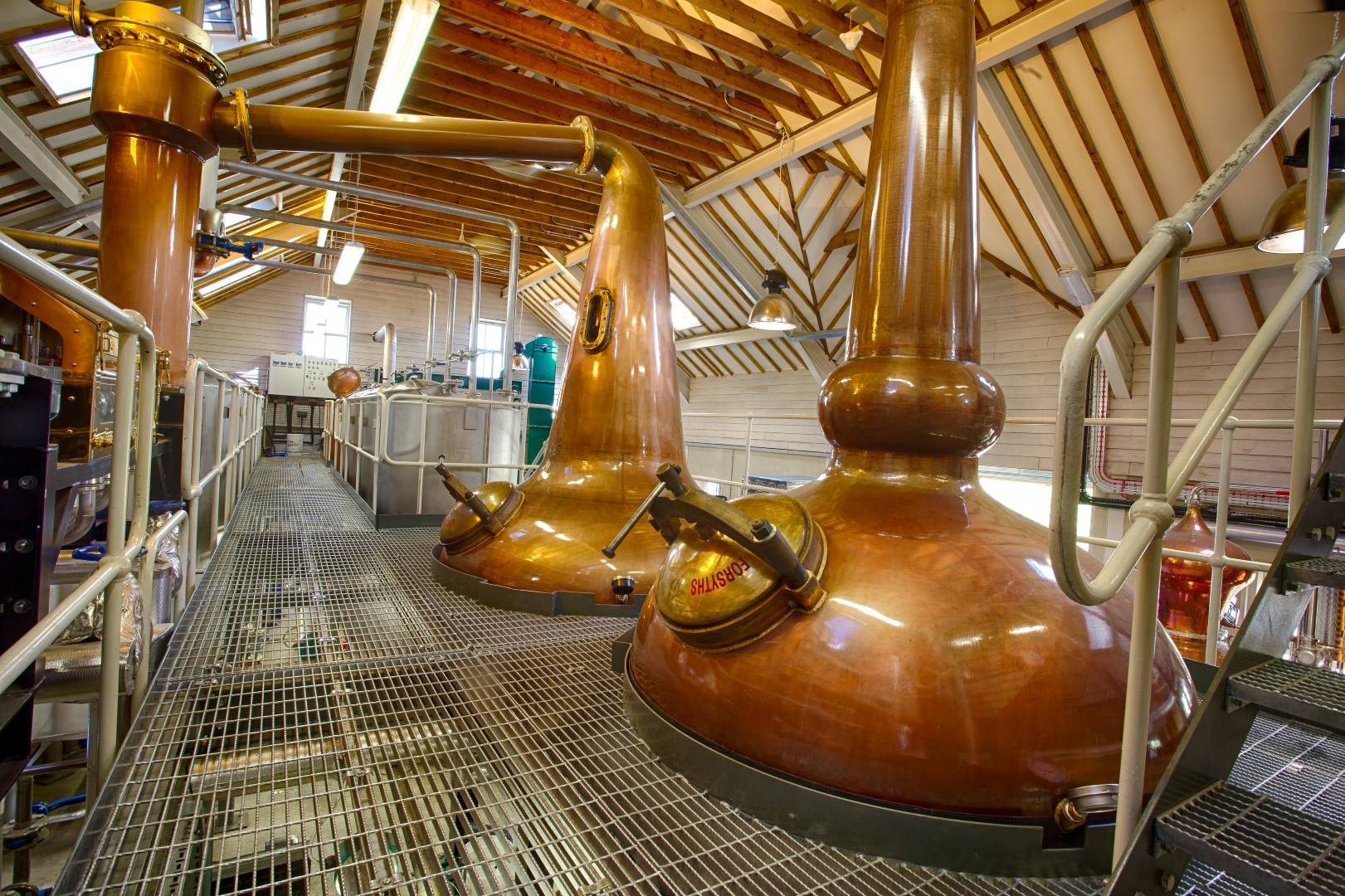Cotswolds Distillery
The Cotswolds is a region of England famed for its idyllic pastoral scenes, beautiful villages and agricultural heritage. Fields of barley and wheat, rambling orchards and herds of sheep as far as the eye can see – all supporting traditional industries; wool-making, brewing, baking. Everything but distilling, until September 2014 when Cotswolds Distillery opened its doors and began production.
Founder Dan Szor, a native New Yorker settled in London, was looking for a new project that would take him away from his career in finance and allow him to spend more time with his family at his home in the Cotswolds. A whisky devotee for many years, Szor had seen the rise of craft distilling in the US and was sure that the same thing was about to take off in the UK. The fields of barley growing around his house were the final inspiration he needed and he decided to open the first distillery in the region, making single malt whisky and gin.

The distillery has a firm commitment to the agricultural community that surrounds it. All the barley used to produce the Cotswolds Single Malt Whisky is locally grown, with strong relationships developed with the farmers. Szor was inspired by the way that discussion of terroir was beginning to enter whisky circles, with distilleries like Bruichladdich on Islay championing local ingredients and the marked effect they can have on the style of the spirit. The links to local farmers aren’t just one-way, however – once the distillers have mashed the malted barley with hot water and drained off the sugary worts, the spent grains are sent to a neighbouring dairy farm to feed the cows there – for free.
Whilst the ingredients and equipment the small distillery uses are all very traditional, an innovative streak runs through the production too. As Szor says, "the joy of opening a brand new distillery is that our daily process isn’t geared towards making a product that has stayed exactly the same for hundreds of years. We’re free to experiment until we know we’re making the best possible spirit, using a modern scientific understanding of the process and fine tuning it along the way."
Traces of this innovative streak can be spotted throughout the distillery; an unusual pair of yeasts used in the fermentation stage, a particularly clean and fruity spirit collected, casks that have been shaved, toasted and recharred to maximise extraction of flavour and colour. And a young, passionate team, all completely new to distilling, who have thrown themselves into this new life with gusto.

Their Cotswolds Dry Gin (initially a small project to keep the distillery going while the whisky matured) has shot to international attention over the last three years, winning Best London Dry Gin at the 2016 World Gin Awards. Similarly to their whisky, it’s the commitment to using the best ingredients and not cutting any corners that has been the cornerstone of its success. Szor points out that most gins on the market blend neutral spirit back into the distilled gin to increase the batch size – a practice known as the ‘multi-shot method’ which he believes often leaves the consumer with a harsh alcohol burn. In contrast, the distillery only use the single-shot method; all that is added to the distilled gin is filtered water to reduce it to its bottling strength of 46% abv. They also refuse to filter the essential oils from the botanicals out of the distilled gin, Szor says "removing oils to prevent the spirit from going cloudy is a common practice in lots of spirits, but it reduces the richness of flavour and texture. We want our spirits to have incredibly full flavour profiles and luxurious mouthfeels, so we wouldn’t dream of chill-filtering them, we embrace the pearlescent ‘louche’ effect and educate consumers that it’s a sign of a rich and full-flavoured spirit."
The Cotswolds Single Malt Whisky was launched at the end of 2017 and is now available through Enotria&Coe. It is a rich and fruity unpeated style, with butterscotch, marmalade and spice notes. And as with the gin, it seems the whisky will be making quite an impact on the market. Industry commentators have already drawn attention to it, with writers such as Dave Broom and Jim Murray praising it as an excellent example of the new ‘world whiskies’ that are increasingly challenging the traditional whisky producing nations, showing that young, vibrant whiskies can be just as exciting and impressive as their older Scottish cousins.
